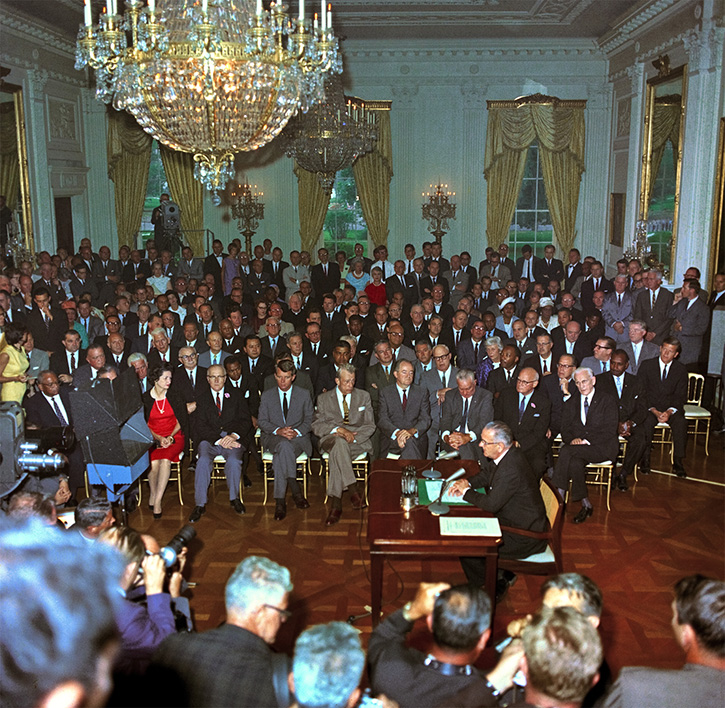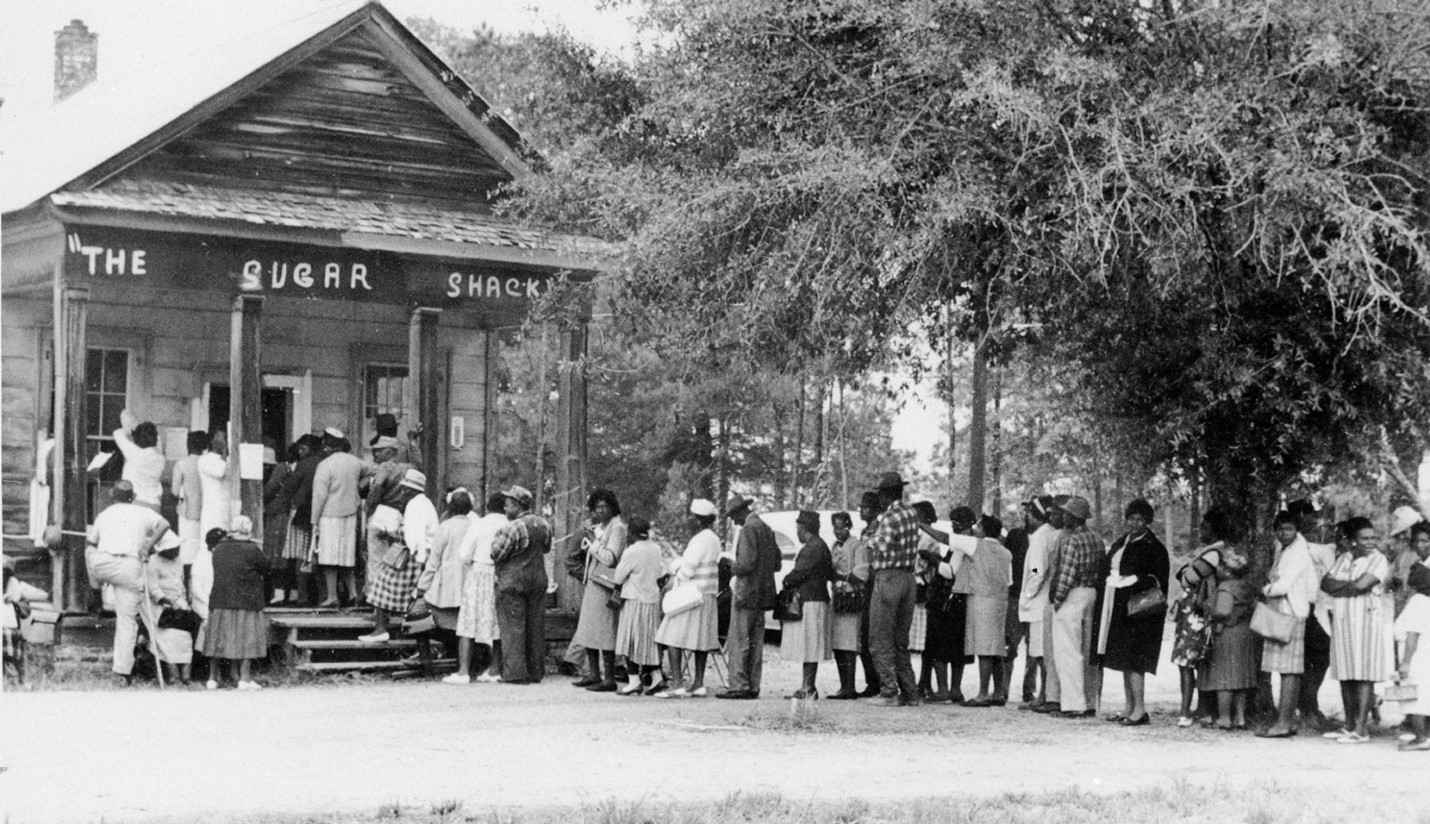Published: July 2, 2024
“This is one country. It has become one country because all of us and all the people who came here had an equal chance to develop their talents. We cannot say to 10 percent of the population that you can’t have that right; that your children can’t have the chance to develop whatever talents they have; that the only way that they are going to get their rights is to go into the streets and demonstrate. I think we owe them and we owe ourselves a better country than that.”
 President Lyndon B. Johnson speaks to the nation before signing the Civil Rights Act of 1964, July 2, 1964. Facsimile. Courtesy of the Lyndon Baines Johnson Presidential Library and Museum, Austin, Texas (267.01.00) Source: Library of Congress
President Lyndon B. Johnson speaks to the nation before signing the Civil Rights Act of 1964, July 2, 1964. Facsimile. Courtesy of the Lyndon Baines Johnson Presidential Library and Museum, Austin, Texas (267.01.00) Source: Library of Congress
On June 11, 1963, President John F. Kennedy delivered his Report to the American People on Civil Rights over radio and television. In his address, he announced that he would soon ask Congress to enact landmark civil rights legislation. He urged the United States to take action toward equality for all Americans regardless of race, and on June 19, 1963, he submitted to Congress the Civil Rights Act of 1963 addressing those rights. Unfortunately, President Kennedy was not able to pass the legislation during his time in office. Following his assassination in November 1963, Dr. Martin Luther King Jr. and President Lyndon B. Johnson pushed for progress on his proposals. These actions led to The Civil Rights Act of 1964* being signed into law by President Johnson in a nationally televised ceremony in the East Room of the White House. This Act outlawed segregation and discrimination based on race, color, religion, sex, or national origin regarding schools, public places, activities, and employment practices. It also enforced the constitutional right to vote. Title VII of the Act created the Equal Employment Opportunity Commission (EEOC) that was charged with enforcing law that prohibited discrimination in these areas. (Source: National Archives and Records Administration (NARA) ) The Civil Rights Act of 1964* did not end discrimination, but it did lay the foundation for change and opened the door for further progress.
First-time Black Voters at the Sugar Shack in Peachtree, Alabama, 1966.
Records of the United States Information Agency, Record Group 306; National Archives at College Park, College Park, MD.
U.S. Code
42 U.S.C. 21 - Civil Rights42 U.S.C. 20A - Civil Rights Commission
Additional Resources
- Listen to President John F. Kennedy's Radio and Television Report to the American People on Civil Rights, 11 June 1963 on the John F. Kennedy Presidential Library and Museum's website.
- Check out the online exhibition "The Civil Rights Act of 1964: A Long Struggle for Freedom" on the Library of Congress's website for more history on the Civil Rights Movement of 1964.
- Explore how Americans have fought for, attained, and protected their rights. DocsTeach.org is the National Archives and Records Administration’s online tool for teaching with documents. Their Rights in America webpage includes other sources and document-based teaching activities and includes topics such as slavery, racism, citizenship, women's independence, immigration, and more.
- Take a look at the National Park Service's webpage "The Modern Civil Rights Movement, 1954-1964" to learn about pivotal moments in the modern civil rights movement, and check out "Civil Rights for Kids and Educators" for teaching tools and lesson plans.
*This links to a Statute Compilation, which is a compilation of the public law, as amended, and is an unofficial document and should not be cited as legal evidence of the law. Learn more.
